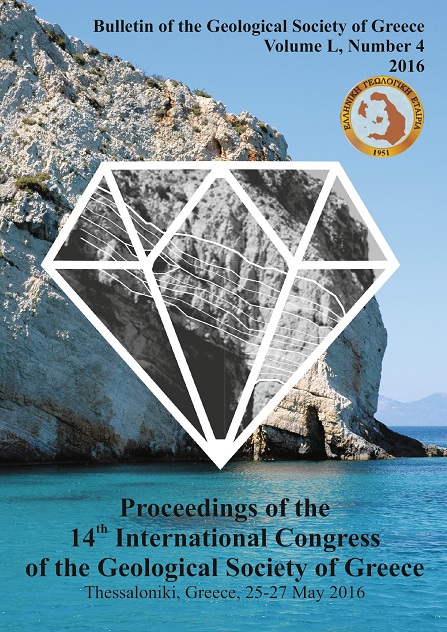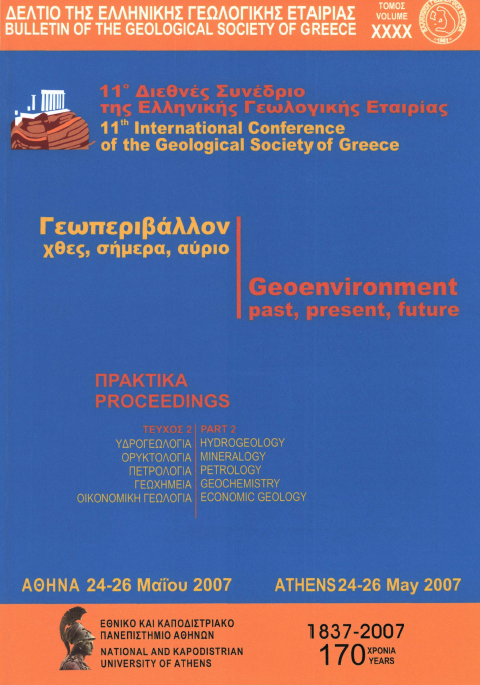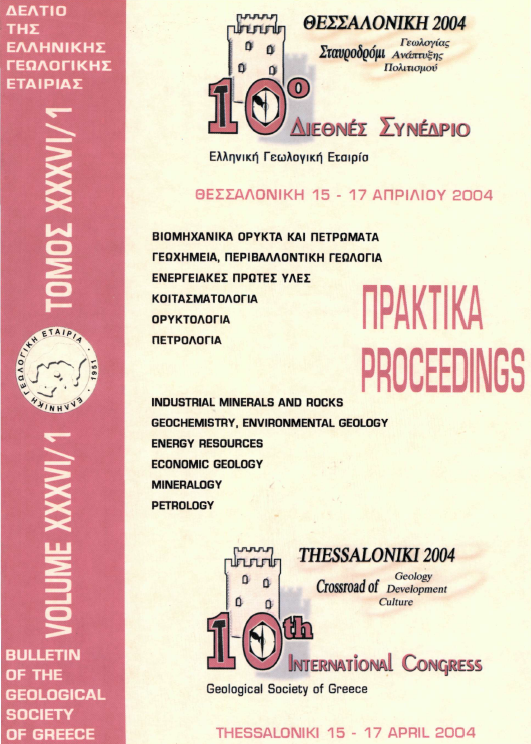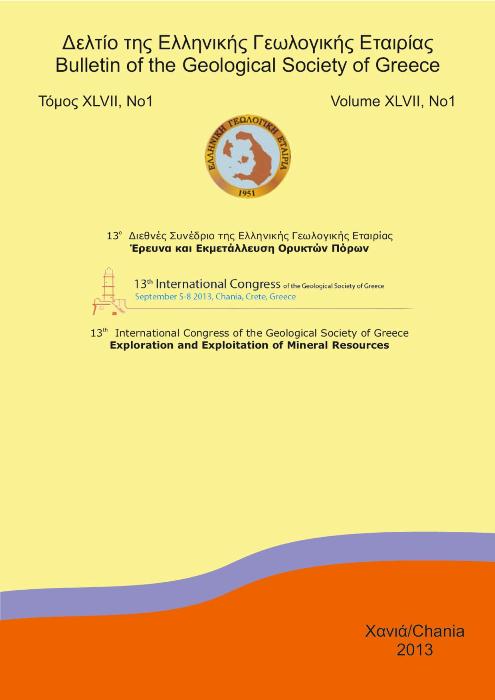SUITABILITY ASSESSMENT OF GRETAGEOUS LIMESTONES FROM THERMO (AITOLOKARNANIA, WESTERN GREECE) FOR THEIR USE AS BASE AND SUB-BASE AGGREGATES IN ROAD-CONSTRUCTION

Abstract
This paper focuses on the assessment of mineralogical, petrographical and physico-mechanical properties of limestone formations in order to evaluate their suitability as road construction aggregates. Research focuses on Olonos-Pindos zone limestones of Creataceous age in Aitoloakarnania province, Western Greece. Special emphasis was given on comparing the mechanical properties to the mineral components. The results were evaluated in accordance with Greek and International suitability Standards for road construction aggregates. It was finally concluded that the physical and mechanical properties of the tested rocks are in compliance with the suitability Standards and that they can be used as road-construction aggregates.
Article Details
- How to Cite
-
Mpalatsas, I., Rigopoulos, I., Tsikouras Β., & Hatzipanagiotou, K. (2010). SUITABILITY ASSESSMENT OF GRETAGEOUS LIMESTONES FROM THERMO (AITOLOKARNANIA, WESTERN GREECE) FOR THEIR USE AS BASE AND SUB-BASE AGGREGATES IN ROAD-CONSTRUCTION. Bulletin of the Geological Society of Greece, 43(5), 2501–2509. https://doi.org/10.12681/bgsg.11656
- Section
- Industrial Minerals and Rocks

This work is licensed under a Creative Commons Attribution-NonCommercial 4.0 International License.
Authors who publish with this journal agree to the following terms:
Authors retain copyright and grant the journal right of first publication with the work simultaneously licensed under a Creative Commons Attribution Non-Commercial License that allows others to share the work with an acknowledgement of the work's authorship and initial publication in this journal.
Authors are able to enter into separate, additional contractual arrangements for the non-exclusive distribution of the journal's published version of the work (e.g. post it to an institutional repository or publish it in a book), with an acknowledgement of its initial publication in this journal. Authors are permitted and encouraged to post their work online (preferably in institutional repositories or on their website) prior to and during the submission process, as it can lead to productive exchanges, as well as earlier and greater citation of published work.






